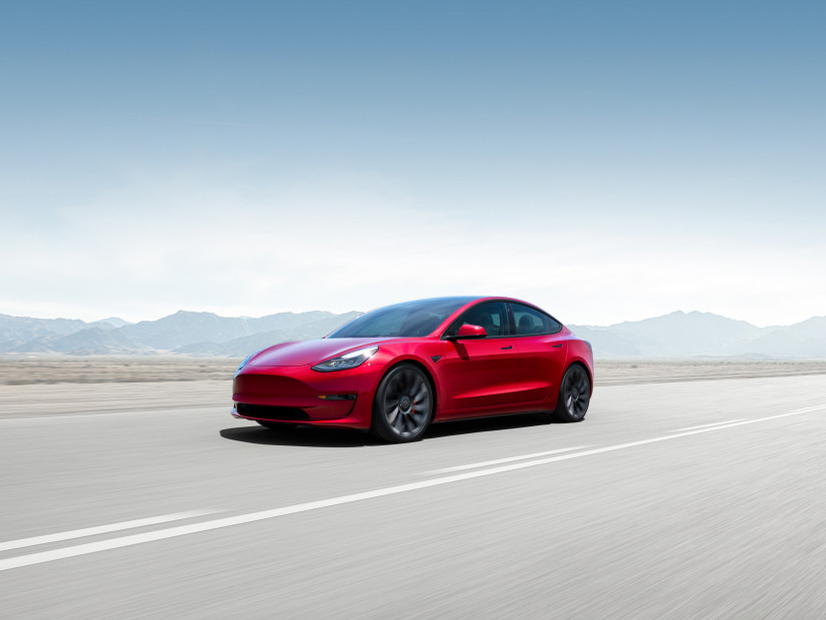
A price increase for certain Tesla models has made the cars ineligible for California’s clean vehicle rebate incentives, a change that could slash short-term demand for the incentive by nearly 60%, according to data presented last week.
Tesla hiked the MSRP for its Model 3 and Model Y on March 15, and Tesla vehicles are no longer eligible for the rebate, according to the Clean Vehicle Rebate Project (CVRP) website.
The program sets a cap of $45,000 on the manufacturer’s suggested retail price (MSRP) for electric cars. The MSRP cap for SUVs, trucks and vans is $60,000. The Tesla price increase in March brought the price of the least expensive Model 3 to $46,990, according to news reports.
The rebates are available for new battery electric vehicles, fuel cell vehicles and plug-in hybrids, and range from $1,000 to $7,000, based on the buyer’s income and vehicle type.
The California Air Resources Board (CARB) held a work group meeting on May 11 to discuss CVRP.
The Tesla ineligibility is projected to decrease CVRP applications for battery-electric vehicles by about 70%, and by about 59% for the program overall, Francis Alvarez, a research analyst at the Center for Sustainable Energy, said during the workshop.
“The 83% to 88% of funds going to Tesla vehicles will become available over time, likely reducing program use initially and then normalizing again as other products fill the gap,” Alvarez said in his presentation.
CVRP Changes
The Tesla ineligibility was one of several changes to the CVRP program that were discussed during last week’s workshop.
The CARB board in November approved $515 million in funding for CVRP, intended to last for three years. At the same time, the agency is planning to ramp down the program as ZEV adoption increases, while shifting the focus to lower-income car buyers.
A first set of changes was implemented in February, when statewide ZEV sales topped 1 million.
The annual income cap for car buyers dropped to $135,000 for single tax filers, down from $150,000 previously. The new MSRP cap of $45,000 is a decrease from $60,000.
Another round of changes is proposed for when ZEV sales hit 1.25 million, a milestone expected in February 2023. The income cap would drop further, plug-in hybrids would lose eligibility and the rebate amount could be reduced.
CARB is still gathering feedback on the proposed changes and watching ZEV sales trends, and the agency could decide not to implement the second phase.
Other potential changes to the program include giving rebate recipients a prepaid card to use for EV charging, in a yet-to-be-determined amount. Another possibility is to expand car-buyer prequalification so that low-income buyers could use the incentive at the point of purchase.
“In making changes to the program, we also want to make sure that we leave some funding on the table for future model releases,” said Raquel Leon in CARB’s Innovative Light-Duty Strategies Section.
Rebate Perspectives
Some workshop attendees supported holding off on CVRP changes proposed for February 2023.
“Continued programmatic changes to this program as well as other rebate programs create confusion among dealers as well as consumers,” said Anthony Bento, director of legal and regulatory affairs at the California New Car Dealers Association. “I think we need to be very cautious on making further changes.”
Eileen Tutt, executive director of the California Electric Transportation Coalition, said it’s clear that CVRP is about to become undersubscribed. Not only should the second phase of changes be dropped, she said, but the income cap should be returned to the pre-February levels.
Tutt said she knows people who were interested in buying an EV but went with a conventional vehicle after losing CVRP eligibility because of the income cap decrease.
“As we move into a 100% ZEV requirement and we really need every single person … to pick an electric vehicle, now is not the time to make it ineligible to a very large group of people,” Tutt said.
CARB staff said a second work group meeting may be scheduled in coming weeks. The agency expects to release a draft funding proposal for clean transportation incentives in mid-July.
The funding plan, which would include proposed changes to CVRP, would then go to the CARB board for approval in November.



